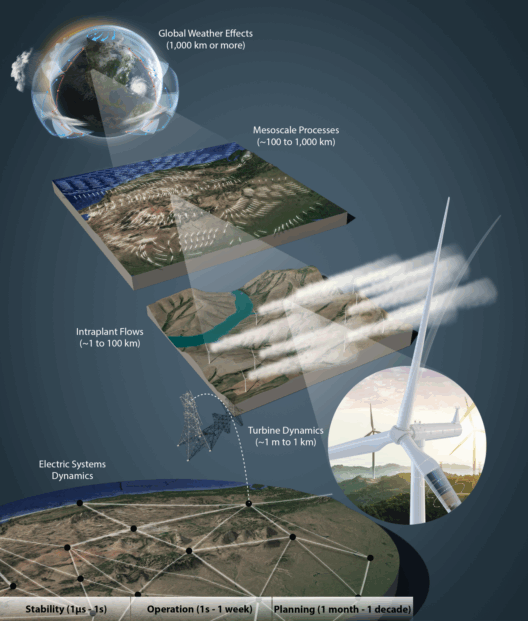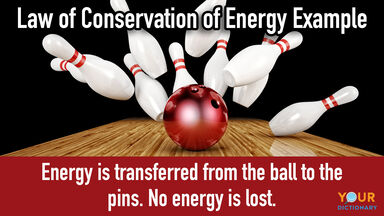Energy conservation is an imperative endeavor that resonates with the core of sustainability efforts globally. As society progresses, our reliance on energy-intensive systems has escalated dramatically, resulting in considerable environmental repercussions. This emphasis on conserving energy is not merely a trend but rather a necessity for ecological balance, economic stability, and societal well-being.
Understanding the multifaceted importance of energy conservation necessitates a thorough exploration of its impact on the environment, economy, and future generations. Each aspect interweaves to create a compelling narrative on why saving energy is crucial for sustainability.
Rising Awareness of Environmental Impacts
One of the foremost reasons energy conservation holds significance is its profound influence on the environment. The extraction and consumption of fossil fuels have been historically linked to a host of environmental issues, including air pollution, habitat destruction, and climate change. Greenhouse gas emissions, primarily carbon dioxide from burning fossil fuels, are a leading contributor to global warming. By conserving energy, we can reduce our carbon footprint, thereby mitigating the dire consequences of climate change.
Moreover, energy conservation diminishes the necessity for energy production, which often involves environmentally invasive practices. For instance, the extraction of coal, oil, and natural gas not only devastates landscapes but also threatens biodiversity. By adopting more energy-efficient technologies and practices, we can alleviate these pressures and foster a healthier planet.
Transitioning to Renewable Resources
Energy conservation paves the way for a more significant shift toward renewable energy sources. When energy demands are significantly curbed through conservation efforts, it becomes increasingly feasible to implement alternative energy solutions. Solar panels, wind turbines, and hydroelectric systems can flourish in a landscape where energy is utilized more thoughtfully.
This transition is crucial. Renewable energy sources not only minimize pollution but also provide a sustainable and inexhaustible supply of energy. By embracing energy conservation, we create a socio-economic environment ripe for the adoption and expansion of these green technologies. The synergistic effect of energy-saving practices and renewable resource adoption is a cornerstone in the quest for a sustainable future.
Economic Benefits of Energy Conservation
The economic advantages of conserving energy cannot be overlooked. Businesses and consumers alike can experience significant financial savings through energy-efficient practices. For households, initiatives such as upgrading insulation, utilizing energy-efficient appliances, and adopting smart home technologies lead to reduced utility bills. Businesses can enhance their bottom line by investing in energy efficiency, thus enabling them to allocate resources toward innovation and employee welfare instead of exorbitant energy costs.
On a macroeconomic level, energy conservation fosters job creation in green industries. The demand for energy-efficient technologies stimulates innovation and entrepreneurship. By investing in clean technologies and energy efficiency, countries can bolster their economies, create jobs, and enhance their energy independence. The ripple effect of these factors manifests in a more resilient economy that is better prepared to weather the challenges posed by fluctuating energy markets.
Cultivating Behavioral Change
Energy conservation is not merely about implementing new technologies; it also necessitates a shift in societal behaviors and attitudes. Cultivating an energy-conscious culture encourages individuals and communities to adopt sustainable habits. For instance, simple changes like turning off lights when leaving a room, utilizing public transit, or opting for natural lighting can collectively lead to significant energy savings.
Education and engagement play pivotal roles in this transformation. Providing communities with information about energy conservation practices fosters a sense of responsibility and empowerment. As individuals recognize the impact of their actions, they become advocates for change, potentially influencing social norms surrounding energy consumption.
The Intergenerational Responsibility
One of the most compelling arguments for energy conservation is the ethical obligation we have toward future generations. Our current consumption patterns not only deplete finite resources but also burden emerging generations with the dire consequences of climate change and ecological degradation. By prioritizing energy conservation today, we lay the groundwork for a sustainable planet for those who come after us.
Investing in energy efficiency and sustainable practices demonstrates forethought and care for the environment. It acknowledges the interconnectedness of today’s choices and tomorrow’s realities. As stewards of the Earth, our responsibility compels us to enact changes that safeguard the planet and its inhabitants.
Challenges and Opportunities
While the imperative for energy conservation is clear, realizing these goals presents challenges. Resistance to change, particularly in established industries, can hinder progress. However, these challenges also provide unique opportunities for innovation and collaboration. Governments, corporations, and communities must work together to address obstacles, creating policies and incentives that promote energy efficiency.
Moreover, technological advancements continue to facilitate energy conservation efforts. Emerging solutions, from smart grids to energy management systems, provide tools for optimizing energy use. These advancements herald a new era of efficiency and sustainability, highlighting the transformative potential of energy conservation.
In conclusion, the conservation of energy is paramount for a sustainable future. Its implications extend beyond mere savings; they touch upon environmental health, economic prosperity, and our ethical responsibilities to future generations. Through concerted efforts in policy, technology, and education, society can harness the power of energy conservation to create a more sustainable world. The journey toward a healthier planet and a more resilient economy begins with the choices we make today. By cherishing and conserving our energy resources, we not only enhance our lives but also safeguard the delicate balance of our environment for generations to come.








